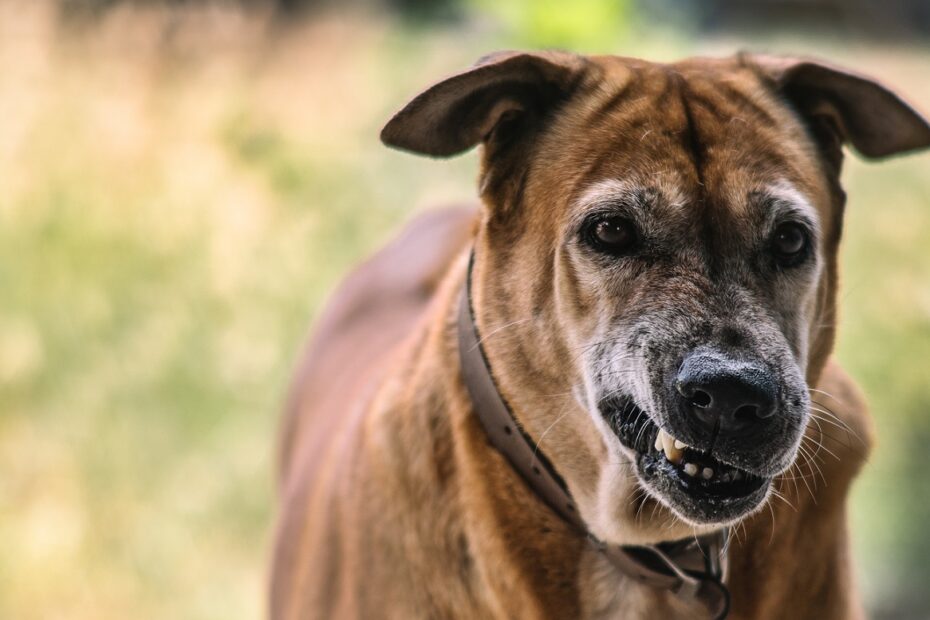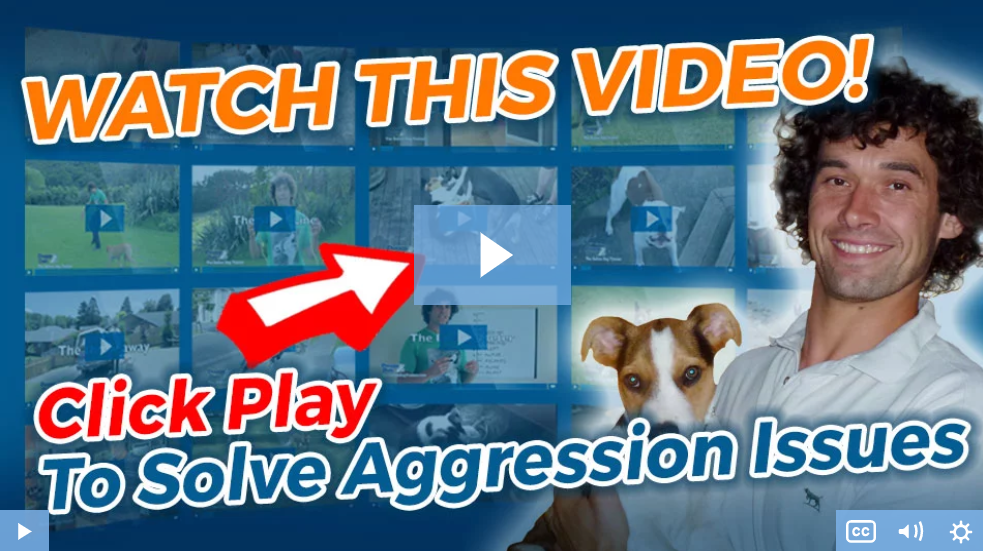At some point or another, most dog owners have issued that immortal phrase ‘my dog growls at me.’ Usually, it’s said with a slightly puzzled air and a look of perplexment.
But let’s get one thing straight…
All dogs, at some point or another, growl. It’s one of the primary ways they communicate with us.
Sometimes it’s done in anger, sometimes it’s done in play. Sometimes it’s to tell you they’re in pain. Other times it’s to tell you to back off.
Basically, growling can mean any one of a number of different things. Not all of those things are anything to be worried about.
A growling dog isn’t by extension an aggressive dog. Not automatically, in any case. But that’s not to say that you should take it lightly.
In some situations, growling can be the first sign of a deeper problem. Learning to understand the context of a growl is therefore essential.
It’s only by understanding what a growl means that you can learn to address it in the appropriate way.
Before we start looking at some of the causes of growling, a quick heads-up. Growling can often have its roots in fear or anxiety. In these cases, teaching your dog how to take control of their emotions is key.
If your dog could benefit from a little calm in their life. I’d highly recommend spending a few minutes watching the short video below from Dan Abdelnoor over at The Online Dog Trainer where he reveals a few simple, highly effective calming exercises to bring your dog’s growling under control.
Not only will they soothe any over-heightened nerves, but they only take minutes a day to implement.
So watch the video, apply Dan’s training methods, and you’ll see a huge improvement in your dog’s growling (or in this case, lack of it) for the better.
Here’s the link to take a look: Click Here To Discover How To Quickly Stop Your Dogs Unwanted, Aggressive Growling Using Simple, Highly Effective Calming Techniques That Take Just Minutes A Day To Implement!
(video will open in a new window)
Why Does My Dog Growl At Me?
Humans talk, dogs growl. Growling is simply a form of communication. It’s your dog’s way of trying to tell you something.
The problem is, what they’re trying to tell you could be one of any number of different things.
Sometimes, it’s obvious.
If your dog growls when you approach them as they’re eating, for example, they’re telling you in no uncertain terms to back off.
Other times, you’ll need to put on your thinking cap if you want to figure it out.
Rather than simply trying to teach your dog not to growl (which is a very, very bad idea for reasons I’ll go into shortly). Try to determine why they’re growling in the first place.
It’s only by doing that that you can address the underlying problem.
Some of the most common reasons for growling include:
Your Dog is in Pain
When we’re in pain, we can go to the doctor and tell them all about it. Dogs can’t. But what they can do instead is growl.
If you notice any other worrying symptoms (maybe their appetite has changed, they’ve lost weight, their coat has lost its luster, or they’re struggling to get out of bed). Their growling could be a sign of illness.
Your Dog is Feeling Anxious
Dogs can feel fear and anxiety just as much as we can.
If a dog hasn’t been properly socialized or has experienced some kind of trauma in the past, certain situations and people may trigger their fears.
This could be anything from a thunderstorm or an unfamiliar place to a child.
In most cases, a fearful dog will try and retreat to a safe space.
If they can’t, they’ll often put on a peacock display of aggression (this could include lunging, snapping, growling, or even biting) to try and get the cause of their fear to go away.
Numerous things can trigger anxiety, and you’ll need to consider the context of the growling to identify its root cause.
Once that’s been done, you can start working on treating it.
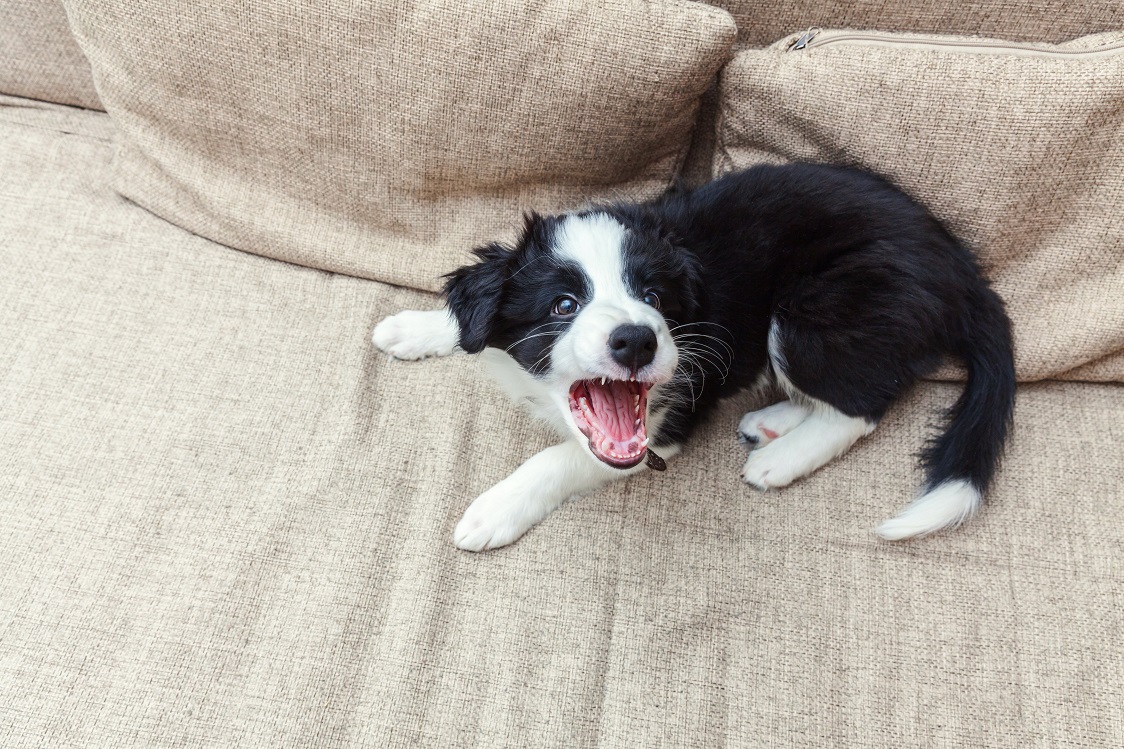

Your Dog is Territorial
If a territorial dog feels that someone or something is invading their space, they’ll often resort to aggressive-like behaviors to scare them off.
A dog’s idea of their territory can extend from the yard, the couch, to a spot on the bed.
And although the behavior is often directed at strangers, they’re more than capable of acting in the same way with familiar faces.
Your Dog is Resource Guarding
Dogs often attribute high value to items like toys, food, chews, or even people.
If they feel that their possession is under threat (e.g., if someone approaches them when playing with a toy or comes behind them while they’re eating), they may growl as a warning to back off.
Your Dog is Having Fun
Not all growling comes from a ‘bad place.’ Often, dogs will growl as a sign that they’re having a great time.
Usually, it’ll come about when dogs play together or when they’re playing with tug toys.
Although the behavior is perfectly normal and usually nothing to worry about. It pays to monitor the situation in case it starts moving towards aggression.
Your Dog Is Tired
We don’t like to be disturbed when we’re tired, and neither do dogs. Try and get them to do something when they need a nap, and they’re more than likely to respond with a growl.
The behavior tends to be most apparent in older dogs with increased sleep needs. In cases like this, your dog isn’t trying to dominate you or act out. They just want some peace and quiet.
Your Dog Is Feeling Grouchy
We all wake up on the wrong side of bed occasionally, dogs included.
If your dog’s having a bad day – maybe they’re feeling a little under the weather, maybe they’re a bit tired. Or perhaps they just want some peace.
They might growl if you try too hard to shake them out of it.
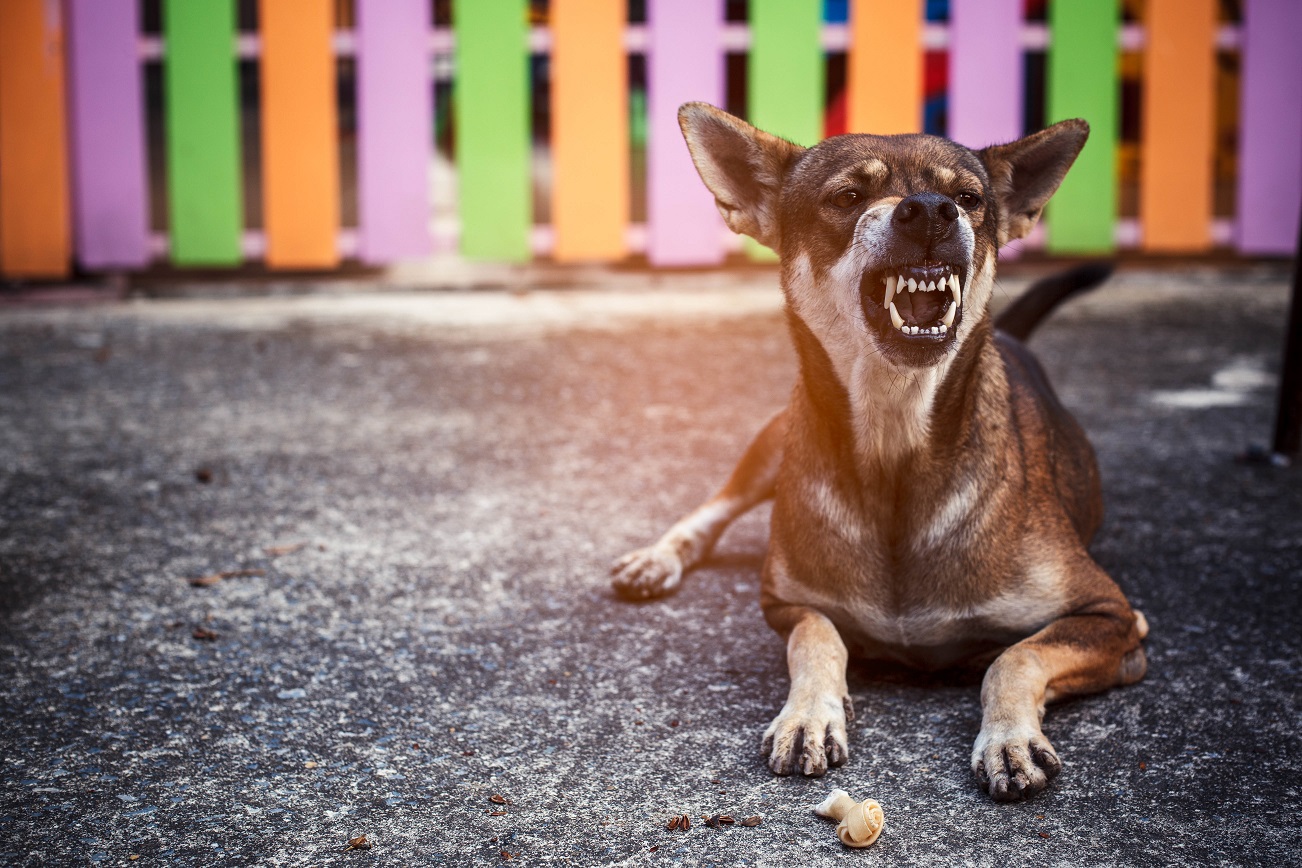

Should I Be Worried If My Dog Growls At Me?
It’s always worrying when your dog suddenly growls at you. But as we’ve seen, it’s not always something to be overly concerned about.
While growling can sometimes indicate ensuing aggression, the growl itself is not necessarily a form of aggression.
If anything, it’s a healthy warning sign. If we’re feeling overwhelmed or testy, we can tell people not to bother us. A growl is your dog’s way of doing the same. Far better a dog that growls than one who jumps straight to a bite, right?
Most dogs want to avoid conflict. If they’re not happy about what you’re doing, they’d far rather let you know via a growl than a bite.
And make no mistake, while a bite is usually preempted by a growl, not all growls lead to a bite.
Growls are simply a way of your dog letting you know what they’re feeling. If you can learn to understand that growl, you can take the appropriate action.
Learn to understand the context. Watch out for other signs of stress (a rigid stance, a fixed expression, tongue flicking, etc.). It’s by spotting these warning signs that you can stop a situation from escalating.
Before you start panicking about whether your dog is aggressive, take a look at the bigger picture.
Think about what caused the growl.
Was your dog doing something in particular at the time?
Did they display any particular body language before, during, and after the growl?
Did the growl lead to anything else?
What was happening around your dog at the time?
If your dog growled during a game. If their posture stayed loose and relaxed. And if they came back to you after growling with the toy to resume the game, it’s more than likely that they were growling in fun.
If, on the other hand, they adopted a rigid posture, a fixed glare, and a wrinkled muzzle when you approached their toy. And then stood guard over it until you moved away.
Then it’s likely they were resource guarding.
Some of the behaviors that accompany growling ARE problematic and need to be addressed. Once the underlying problem is treated, the growling will naturally diminish.
But NEVER EVER try to stop a dog growling by punishment. The growling is not the problem. The growling is a warning sign.
Punish your dog for growling, and soon enough, they’ll stop giving you any warning that they’re uncomfortable, stressed, and on the verge of something worse.
Treat the problem, not the symptom.
(video will open in a new window)
How to Stop Your Dog Growling
Before we look at the ways to tackle your dog’s growling, a quick reminder.
Don’t ever punish your dog for growling. Scolding your dog for a growl is the equivalent of taking the batteries out of a smoke alarm to stop it from going off.
A growl is your warning. Take it seriously, obviously.
Address the underlying cause, by all means. But don’t make your dog think that growling leads to punishment. If you do, they’ll stop giving you that warning before they bite.
Now that we’ve got that cleared up, here’s what you can do to address the underlying reasons for your dog’s behavior.
Take a Trip to the Vet
Before anything else, rule out a medical problem.
If your dog’s injured or ill, it’s little wonder that they growl. Don’t miss this step, particularly if your dog’s behavior has arisen out of the blue.
Identify the Root Cause
You’re not going to be able to address a problem if you don’t understand what’s causing it in the first place.
So take a step back and consider the circumstances around your dog’s behavior. Revisit those commons reasons for growling we touched on earlier.
Does your dog display sign of resource guarding (in other words, do they tend to growl in the presence of certain food or toys)?
Does the growling happen around strangers or new places?
Is it accompanied by signs of fear (pacing, shaking, panting, drooling)?
Consider the context, the body language, and the circumstances. Only by doing that will you be able to get to the root cause.
Related Post: Why Is My Puppy Growling At Me – Common Causes And Cures
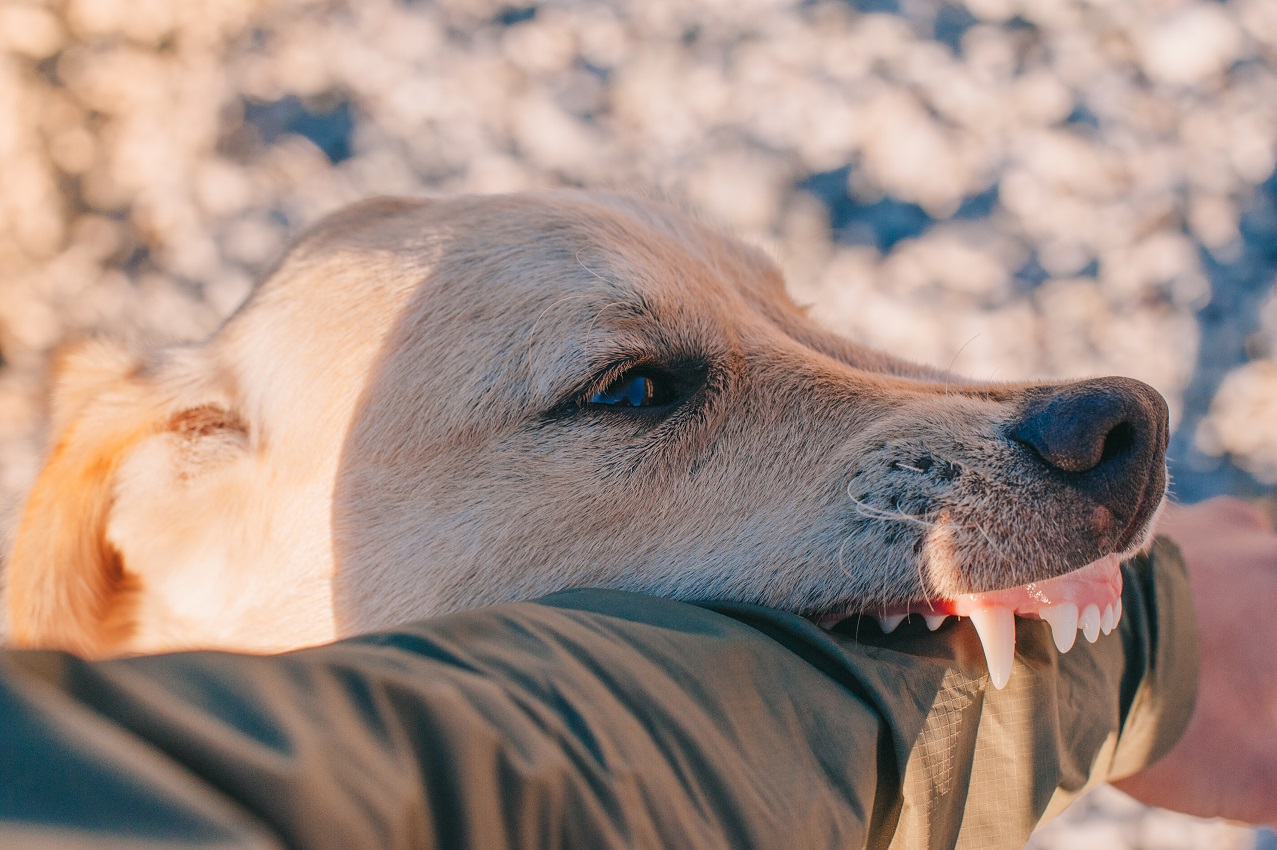

Introduce the Solution
Once you know what’s making your dog growl, you can start working on the fix.
If your dog is growling out of fear, remove the triggers while you work on long term behavior modification techniques like counter conditioning and desensitization.
If your dog growls because your child decides they want to play during their nap time, teach your child to be mindful of your dog’s needs, and create a safe retreat your dog can rest undisturbed.
Resource guarding and territorial aggression can typically be treated very successfully with the appropriate behavior modification strategy.
Get Help
Some of the underlying causes of growling can become serious if left unchecked. Don’t wait around hoping it’ll eventually go away on its own accord.
Resource guarding, territorial aggression, fear… they aren’t things your dog will just ‘get over.’
If you’re struggling to identify the cause of your dog’s growling.
Or if you don’t feel confident in your ability to recognize other warning signs of potential aggression.
Or, if you’re struggling to fix the problem alone, ask for help.
It’s also advisable to seek professional help if the growling has already preceded an actual bite.
Apply Some Calm
Teaching your dog how to take control of their emotions works on multiple levels across multiple situations.
Remember Dan’s Powerful Calming Technique I introduced you to earlier? Now’s the time to knuckle down and start practicing it.
Fearful and anxious dogs in particular will benefit from the training, but don’t underestimate their value in other circumstances either.
As well as being useful in de-escalating a tense situation, it’s incredibly effective at putting your dog in a calm, focused mindset.
Regardless of which positive training technique you utilize, a calm, focused dog is always going to benefit 100% more from training than one who’s tense or distracted.
Final Thoughts
Dogs growl. It’s in their nature. But as to the reasons why they growl… well, every dog is different.
Some will growl in play; others will growl in warning. Figuring out the exact reason is the most crucial step in tackling the problem.
It’s only once you work out what’s making your dog growl that you can find the solution to fit.
But just remember – the growl is not the problem.
Resource guarding, territorial aggression, fear… these are the problems. Treat the cause, not the symptom.
Trust me, a dog who lets you know they’re upset by growling is doing you a favor.
Accept it with thanks and start working on the real issue. With time and patience, very few problems can’t be overcome.
